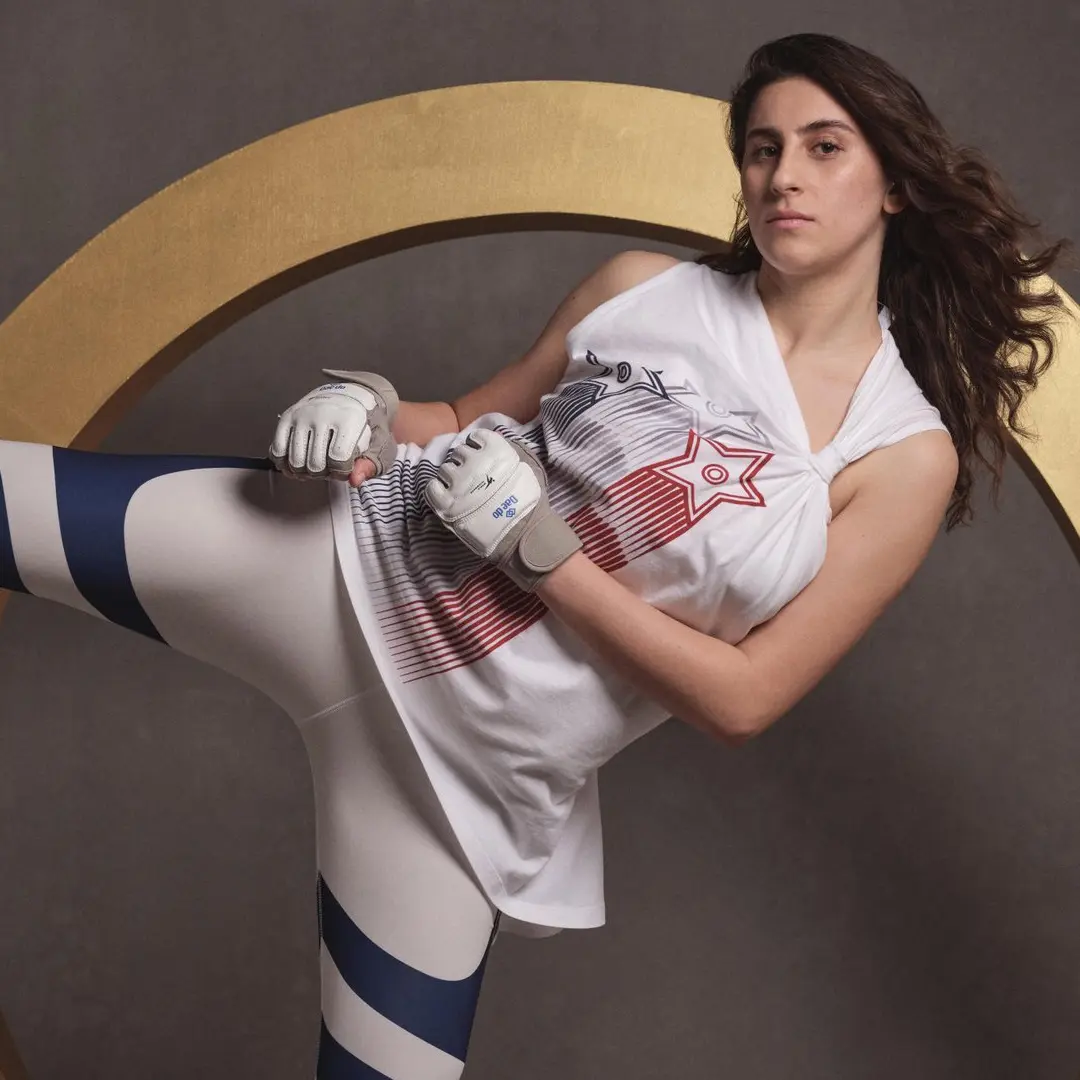Menu

asketball, uSA
Season 3
5
1
Marzieh, the daughter of two Afghan parents, grew up as a refugee in Iran. “They treated us differently” she shares, which eventually led her family to move back home to Afghanistan. In her home country, Marzieh joined the Taekwondo national team and quickly climbed the ranks, where she remained until the 2021 Taliban takeover. That’s when everything changed…
Women can no longer go to school, the gym, or even outside without a male chaperone. As Marzieh shares, “The Taliban told me not to come back to the gym and if I did, they would do what they wanted with me.”
She had to flee the country and has since lived in France, where once again, she’s a refugee. Despite settling into a new country, home is always on her mind; “I have to use my freedom to talk about Afghan women…Nobody will kill me here if I talk about the Taliban and the problems.” So that’s what she’s doing. In today’s episode, Marzieh shares what she wants the world to know about Afghan women (+ shares three asks below).
As Marzieh looks to the future, she’s not going to sugar coat things. Right now, no she’s not hopeful for the future of Afghan women, but she shares that “after the dark, always comes light.”
Marzieh has three asks of you:
1. Write about Afghan women in your social media. Flame Bearers has graphics that you can share to support Marzieh and other Afghan women. DM us and we will share so you can post.
2. Donate to nonprofits working on the ground in Afghanistan. A few organizations to consider: World Food Program, International Rescue Committee, and Save the Children
3. If you’re in a position to hire, employ or support a refugee in your community, do so.

Taylor has been in the pool since age 4, when her mom (a swim coach) and older sister (also a swimmer) first introduced her to the water. A D1 recruit at Loyola University Maryland, Taylor was gearing up to make a splash at the collegiate level. She was then diagnosed with Ehlers-Danlos syndrome, a condition characterized by joint pain, loose joints, and hypermobility. According to Taylor, this period of her life was both physically and emotionally excruciating. She shares how she needed to “mourn the life [I] lost but also realize that [I] gained a new life.”
Hearing how important swimming was to her, Taylor’s physical therapist encouraged her to return to the water. One day when at the Loyola pool, the swim coach who recruited her suggested Taylor explore para swimming. This recommendation changed Taylor’s life.
Flash forward to today and Taylor is a 2x S10 American Record Holder and 7x Parapan Games medalist. As Taylor looks to the future, she hopes to see a world in which women are “valued like the men.” She also shares how she hopes to become a Mom and how “women can be strong and powerful” while also at the top of their sport.
Alejandra is the Dominican Republic’s first female Paralympic swimmer, a Parapan American silver medalist, engineer, dog mom, and as she shares, “a 4’3” tall girl promoting inclusion.”
When not swimming (which she does 4-5 hours a day), Alejandra works for the International Paralympic Committee, making sport more accessible for all. As if that’s not enough, she’s also writing her masters thesis. When asked how she juggles it all, she shares that she’s driven by her why. She knows exactly why she’s waking up so early and has crystal clear goals.
In today’s conversation, we talk about her hopes for Paris2024, and Ale shares big news — she’s preparing for her retirement post-Paralympics! She also debunks some of the misconceptions about the Paralympics:
1. Paralympians are elite athletes NOT recreational athletes
2. She’s competing in the Paralympics NOT Olympics (they are different!).
Manasi Joshi has won 10 gold, 9 silver and 15 bronze medals at level 1 international tournaments. She’s a former World Champion (SL3), an engineer, an Arjuna award winner, Aspen Fellow, and has spoken at Harvard.
As Manasi approaches the Paris Paralympics, she’s feeling “stronger than ever.” That said, she’s pauses to flag HOW she hopes journalists and the media should talk about her, or rather how they shouldn’t. She shares, “I don’t want to be called inspirational because I happen to play the sport with a disability. I want to be called inspirational because I put in the same amount of time and effort and show up every day.” Manasi shares that she’d rather have a short column than pages in a magazine focusing on how she’s an inspiration because of her disability.
She’s more than a headline that pulls at people’s heartstrings: she’s an elite athlete who dominates international tournaments and puts in the blood, sweat and tears to make it to the top.
Copyright @2024 Flamebearers Marketed and Designed by Bullzeye Media